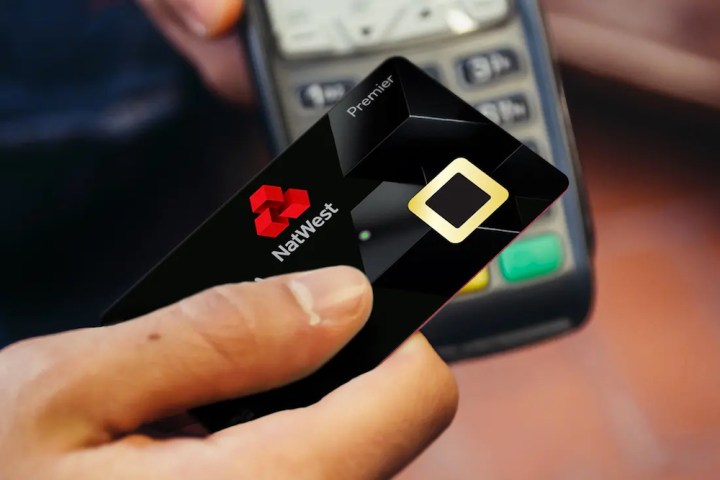
A bank in the U.K. will begin testing payment cards with built-in fingerprint sensors, in an effort to end the need for a PIN code, and to make payments more secure. Additionally, this new style of contactless payment will also remove restrictions on the amount that can be paid using a contactless system, which may also have ramifications for mobile payment options like Google Pay.
NatWest, an established U.K. bank, has announced 200 people will be part of the first trial, set to begin in April according to those involved in the test. It’s the first time this technology will be tested in the U.K.. The card will have a fingerprint sensor in the body, much like we see cards with chips today, and this will need to be pressed while attempting to make a payment. The technology will mean it won’t be necessary to put your card inside a terminal, or to enter a PIN number.
Contactless payments are common in the U.K. and Europe, but come with a restriction on the amount that can be spent. In the U.K., contactless transactions — including those made with Google Pay and Apple Pay — cannot exceed 30 British pounds. This is enforced by banks and almost all retailers. By introducing a fingerprint scanner, NatWest says it can remove the restriction, allowing transactions higher than 30 pounds to be made without the need for a PIN number.
This may eventually have an impact on how Google Pay, Samsung Pay, and Apple Pay operate in the future. Biometric authentication is standard across mobile devices today, and if banks add fingerprint sensors to cards in the future, the payment limit may be lifted for mobile contactless payments on devices secured by a biometric method, too.
NatWest is working with security company Gemalto on the project, but has not revealed how customers will register their fingerprints with the bank in order to activate a card. Fingerprints may need to be registered in a branch of the bank, which may be made more difficult due to a spate of branch closures over the past few years, until a remote solution is found. NatWest is also working with Visa and Mastercard on the project.
It’s not the first time such trials have taken place. Fingerprint-enabled bank cards have made news since 2014, with Mastercard working with several banks in various countries around the world since then. Older versions of cards with fingerprint sensors embedded in them still needed to be placed in a payment terminal though, making this latest test more convenient and considerably faster than before. Despite the many tests, the technology has not emerged to become mainstream yet.


